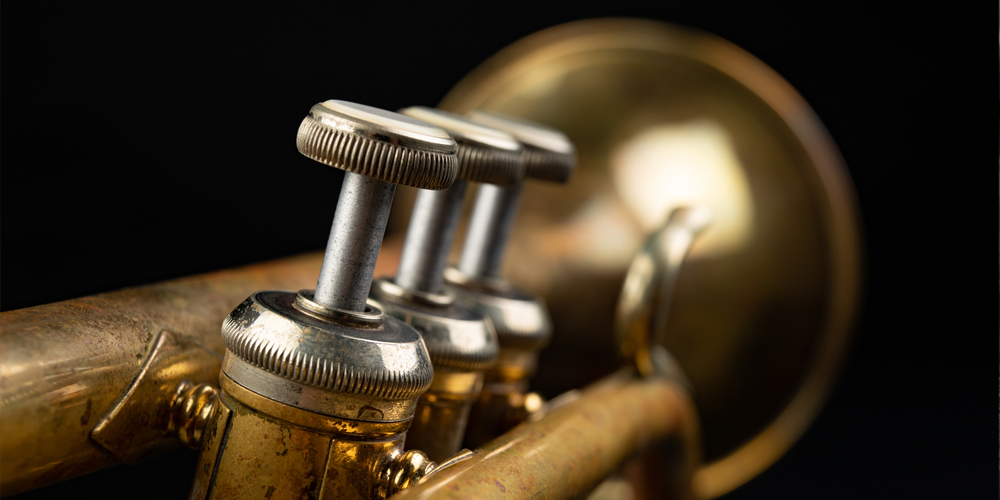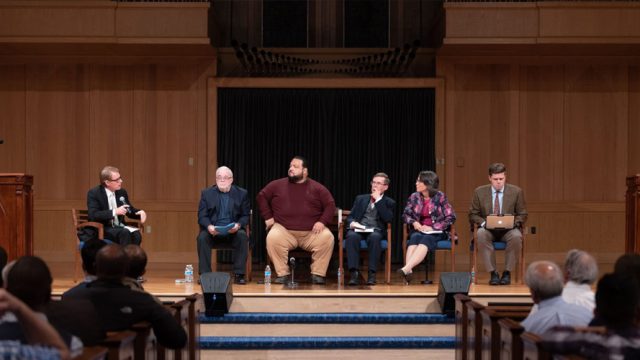Site offers history, updates, and resources about church brass-instrument ensembles.

A new volunteer-driven website focuses on a music ministry of the Seventh-day Adventist Church in Germany and is helping to highlight a long tradition of worship and praise through brass instrument performances, church music leaders in that country said.
The site, called Adventposaunewerk (Advent Brass Instrument Work), includes a short presentation, a history of brass instruments in the Adventist Church in Germany, current information about brass instruments and the church, reviews of past events, and announcements of future performances and seminars.
A Long Tradition
The Adventist mission school founded in 1899 in Friedensau, near Magdeburg, featured a music group with brass instruments and a large drum. The first missionaries from that area, who went to German East Africa in 1903, took their brass instruments with them and taught the local people how to play them. Results of their work are still present in Tanzania, church leaders said.
The first Adventist brass instrument ensembles were created in Germany in Chemnitz in 1918, in Nuremberg in 1926, and in Annaberg in 1934. Other ensembles followed in several other German cities.
Only the Nuremberg Brass Instrument Ensemble survived World War II. In 2016, the group celebrated its 90th anniversary.
After the end of the war, church members and musicians began tentative attempts at reviving the old ensembles. New brass instrument ensembles were also created, especially after the arrival of displaced people from Germany’s eastern territories. Many of them brought their instruments and skills and thus acted as a motivational boost. Also, music-gifted young pastors recognized the ministry as a good means of church and youth outreach. The few brass instruments ensembles that formed were for the most part isolated, however, without contact with each other.
A Man with an Idea
In 1948, Adventist pastor Paul Bromba had the idea of proclaiming God’s love to his fellow human beings through brass instrumental music, something that was already common in Evangelical churches. That year, he succeeded in founding a brass instrument ensemble at Detmold Seventh-day Adventist Church.
In 1951, another ensemble was founded in Mölln, Holstein. Due to Bromba’s tireless efforts, with repeated appeals to the church leadership in West Germany for the promotion of the ministry, Advent Brass Instrument Work was launched in 1958. The ministry began providing training and resources for church brass instrument musicians.
Ministry Development
In 1964, Johannes Kahle, a music teacher with a degree from the Musikhochschule in West Berlin, was appointed music commissioner for the Federal Republic of Germany. His professional competence gave the ministry a qualitative jump. In 1981, Hans-Joachim Scheithauer was appointed Federal Wind Instruments Chairman. In the West German federal states, appointed music stewards further supported the development of the ministry.
Between 1948 and 1958, nine ensembles were created. Forty-three ensembles were added in the next seven years. In 1983, 25 years after the founding of the ministry, there were 82 Adventist ensembles with about 1,200 active players in Germany, including in West Berlin. In East Germany, Jörgen Zschunke and Wolfgang Kabus founded and supervised brass instrument ensembles with around 350 players.
In 1970, the ministry held its first national meeting at the Berlin Philharmonic. It was followed by other national gatherings every five or six years.
In 1995, Advent Brass Instrument Work became a member of the Evangelical Brass Instruments Service in Germany. “Through this membership, we made many useful contacts, which supported exchange of resources, training, and fellowship,” Hans-Joachim Scheithauer reported in his chronicle of the ministry. In individual federal states, relevant Adventist music commissioners conduct weekend training courses for the ensembles and other training courses for conductors.
Giving God the Glory
The ministry didn’t slow down after the German reunification. As a result of ongoing training, the quality of the musical ensembles has increased, leaders said. In 2014, about 500 active players were members of 60 brass instruments ensembles across Germany. “The quantity has decreased, but the quality has increased,” Scheithauer emphasized. With more offers in the field of music, brass instruments are just one of many available today. The motto of the ministry, however, hasn’t changed, leaders said. “It will always be, ‘Give God the Glory,’ ” they said.
The original version of this story was posted by Adventistische Pressedienst.








